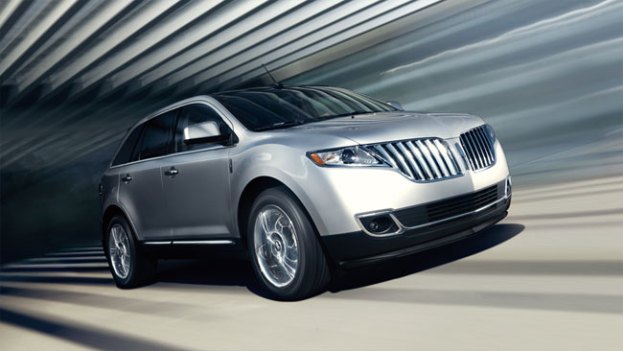 At the Detroit Auto Show in January 2013, the newly rechristened Lincoln Motor Company will add a new model, the MKC compact crossover, to its lineup. According to Reuters, the MKC will be shown in concept form and go on sale in early 2014.
At the Detroit Auto Show in January 2013, the newly rechristened Lincoln Motor Company will add a new model, the MKC compact crossover, to its lineup. According to Reuters, the MKC will be shown in concept form and go on sale in early 2014.
The current Lincoln lineup is composed entirely of rebadged Ford vehicles, and the MKC will apparently follow that trend. The crossover is reportedly based on the newly redesigned 2013 Ford Escape.
Given the MKC’s Escape underpinnings, buyers can expect a bevy of EcoBoost turbocharged engines, although we’ll have to wait for the MKC’s Detroit debut to see if a hybrid version will be built.
The MKC will almost surely get Sync with MyLincoln Touch, the rebranded version of Ford’s MyFord Touch infotainment system.
However, the MKC’s styling may be more interesting than its engine or its electronics. It will be the first car designed from the ground-up by Lincoln’s new chief designer, Max Wolff.
Lincoln poached Wolff from Cadillac, where he worked on the evolved version of that brand’s “Art & Science” styling theme seen on the XTS and projects for other GM divisions.
If Wolff can turn the awkward-looking Escape into a classy Lincoln, he would accomplish a lot for the brand. The MKC needs to look like a distinct model, not an Escape with a chrome grille.
Lincoln’s last new product, the 2013 MKZ, definitely looks different from the Ford Fusion it’s based on, but it’s hard to say which one looks better or more expensive when they are parked side by side.
Lincoln recently changed its name to Lincoln Motor Company (the name it had before it was bought by Ford in 1922) as part of a campaign to differentiate itself from the Blue Oval. The goal is to get customers to think of Lincoln as a luxury brand, and not just as a division of Ford.
The MKC will kick off a round of product redesigns for Lincoln. The Edge-based MKX (pictured) is reportedly due for a redesign in the fall of 2014, followed by the MKS in the spring of 2015.
A new Navigator, due in the fall of 2013, could trade its V8 for an EcoBoost V6. In addition, rumors of a rear-wheel drive car based on the 2015 Mustang still persist. The car could either be a coupe or sedan (why not both?) and debut in either 2015 or 2016.
Updated: A previous version of this article stated that Wolff designed the Pontiac Solstice. The Solstice was designed by Franz Von Holzhausen; Wolff designed the 2003 Holden SSX concept, the styling of which inspired the 2008 Pontiac G8.


